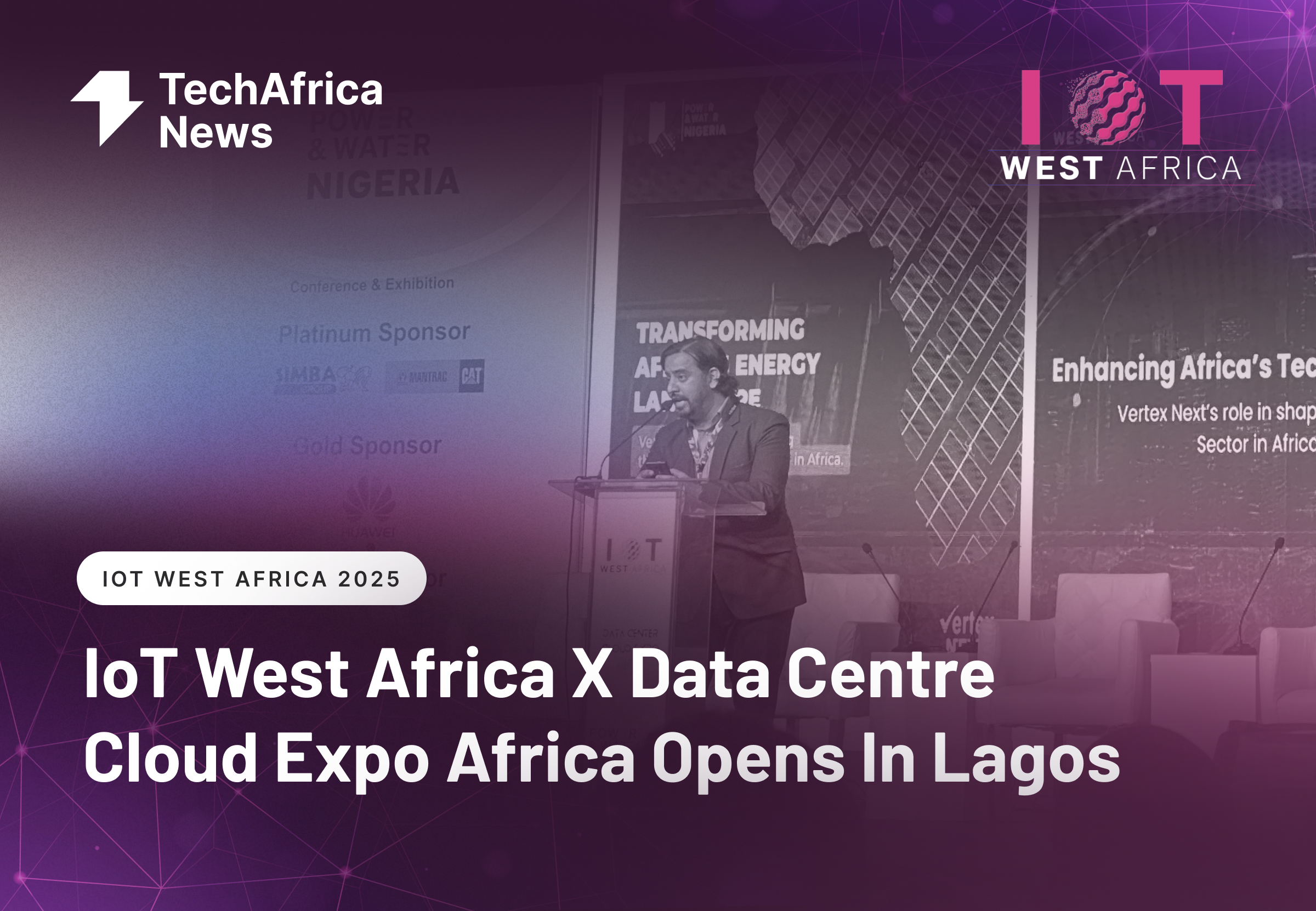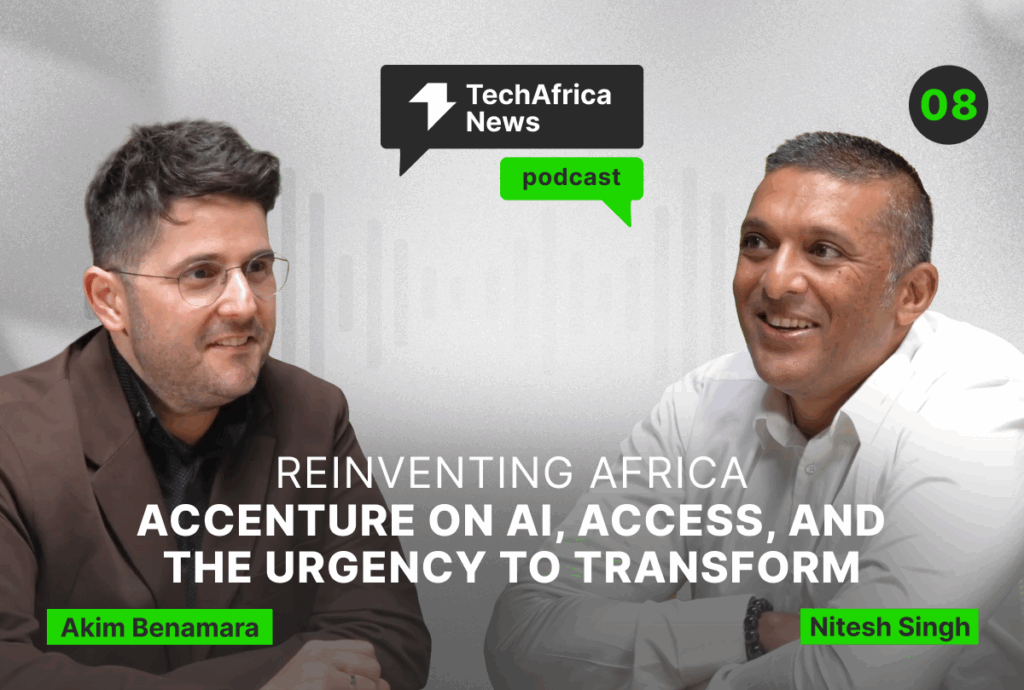IoT West Africa X Data Centre Cloud Expo Africa Opens in Lagos with Focus on Infrastructure and Inclusion

Lagos Nigeria, 13th of May 2025: This morning in Lagos, Nigeria, the doors opened to IoT West Africa, co-located with the Data Centre Cloud Expo Africa, marking the beginning of a multi-day conversation on the continent’s digital infrastructure and technology future.
In the welcome address, Anoosh Sirkeck and Wofai Samuel of Vertex Next outlined the purpose of the gathering: to bring together key stakeholders across the digital, energy, and infrastructure ecosystems, with the goal of building a platform that supports innovation, investment, and collaboration.
Sirkeck emphasized the importance of aligning digital innovation with sustainable development and smart infrastructure. “We are living in an era where data drives decisions, where energy fuels economies, and where technology shapes the future,” he said, adding that West Africa holds a unique position at the intersection of these shifts.
Samuel reinforced this perspective, noting the event’s intent to encourage cross-sector partnerships, foster investment in critical infrastructure, and contribute to more inclusive and sustainable digital growth. “This isn’t just a conference—it’s a step forward in building a more connected and resilient future.”
Samuel’s co-anchoring highlighted the collaborative spirit behind the event, which merges IoT West Africa, Power & Water Nigeria, Data Centres, and Cloud Expo Africa into one unified platform. With over 13,000 delegates in attendance and participation from hundreds of exhibitors and speakers, the event sets out to explore key developments in AI, IoT, cloud technologies, and their applications across energy, finance, manufacturing, and governance.
As sessions begin, the focus is clear: understanding how connected technologies can help address Africa’s infrastructure needs and create new opportunities for growth.
The day’s discussions began with an opening keynote titled “A Bird’s Eye View of IoT: Mapping the Future of Connected Intelligence in Africa,” delivered by Dr. Aristotle Onumo, Director of Stakeholder Management and Partnerships at NITDA.
In his address, Dr. Onumo offered a panoramic view of the opportunities and challenges presented by the Internet of Things (IoT) across the African continent. Emphasizing the exponential global growth of IoT technologies—projected to exceed 5 billion connected systems—he drew attention to the question on everyone’s mind: What does this mean for Africa?
Africa, home to nearly 1.4 billion people, and with Nigeria accounting for around 40% of that population, is poised to play a critical role in the global digital landscape. According to Dr. Onumo, Africa’s mobile infrastructure, particularly its mobile penetration rates, lays a solid foundation for expanding IoT deployment in sectors like agriculture, healthcare, logistics, and urban development.
“Not that we want to repeat the past, but to reinvent what the future looks like,” he remarked, urging stakeholders to rethink the continent’s development approach through the lens of smart technology.
He illustrated how IoT sensors can transform local industries—from monitoring oil consumption and optimizing irrigation to tracking livestock in real-time. But while use cases are compelling, he was clear-eyed about the hurdles ahead.
Dr. Onumo identified four key challenges that must be addressed to unlock IoT’s full potential in Africa:
- Connectivity Gaps: Many rural areas still operate on 2G or 3G networks, which limits access to real-time IoT capabilities.
- Energy Infrastructure: Reliable power is still a major barrier, especially for connected devices that need uninterrupted uptime.
- Cybersecurity and Governance: As machines increasingly connect with machines—and people—it’s essential to develop robust governance frameworks.
- Digital Skills Gap: With only 54% data literacy in Nigeria, a significant push is needed to ensure the broader population can participate in and benefit from the digital economy.
“IoT is not just about technology,” he stated, “it is about life-saving systems, economic tools, and a means of driving inclusion.”
To address the skills challenge, he introduced NITDA’s national Digital Literacy for All strategy, which aims to reach 30 million Nigerians by 2027, focusing particularly on those in the informal sector. Supported by initiatives like the Digital Literacy Champions programme, the goal is to raise Nigeria’s data literacy rate to 70% by 2027 and 90% by 2030.
Dr. Onumo concluded his keynote with a strong call to action: Africa must not only adopt IoT but own its transformation—by building homegrown solutions, fostering partnerships, and aligning innovation with sustainable development.
Over the course of the day and the next two days, the event will continue to unpack the opportunities and challenges shaping the continent’s tech-driven transformation. Stay tuned as we bring you live insights, key moments, and expert commentary from across the exhibition halls and conference sessions.






